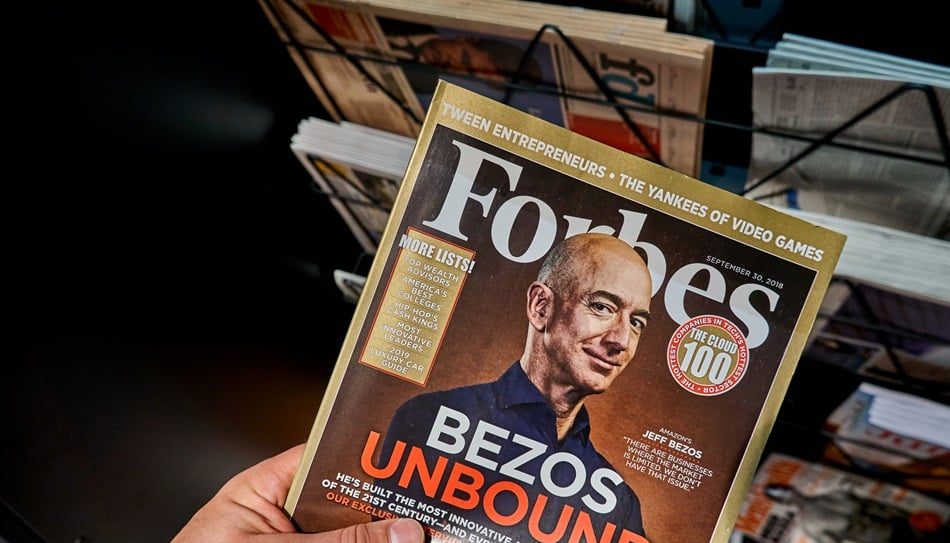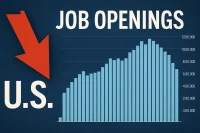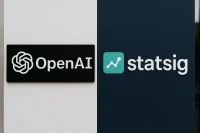Amazon founder and Washington Post owner Jeff Bezos has defended the newspaper’s landmark decision to stop endorsing presidential candidates.
In a recent op-ed titled The Hard Truth: Americans Don’t Trust the News Media, the multi-billionaire addressed concerns and criticisms regarding the shift in policy. He stressed the decision was an effort to restore lost faith in journalism among the American public.
A Strategic Change in Election Coverage
Bezos’s op-ed came in response to growing criticism following The Washington Post’s announcement to end a long-standing tradition of presidential endorsements.
Historically, the Post, like other major newspapers, has regularly offered its endorsement during presidential elections. However, the decision to discontinue this practice was a deliberate move, according to Bezos, meant to address the growing perception of bias in the media.
He wrote:
“Presidential endorsements do nothing to tip the scales of an election.
“No undecided voters in Pennsylvania are going to say, ‘I’m going with Newspaper A’s endorsement.’ None.
“What presidential endorsements actually do is create a perception of bias, a perception of non-independence. Ending them is a principled decision, and it’s the right one.”
A Response to Lost Public Trust
Bezos expressed concern over a decline in public trust towards the media. He cited a recent Gallup poll where news organizations ranked the lowest among American civic and political institutions.
Bezos indicated The Washington Post’s decision was a necessary move in a climate where many Americans feel the media cannot be trusted to provide unbiased information.
He said the paper’s primary goal must be to present information that is not only accurate but also seen as credible by its readers.
He wrote:
“It’s a bitter pill to swallow, but we are failing on the second requirement,” Bezos admitted.
“Most people believe the media is biased. Anyone who doesn’t see this is paying scant attention to reality, and those who fight reality lose.”
Challenges in the Wake of the Announcement
The decision has not come without repercussions within The Washington Post itself.
Since the announcement, the newspaper reportedly lost over 200,000 digital subscribers.
Three members of the editorial board have also chosen to step down from their positions, though they continued in other staff roles.
This internal shake-up reflects the tension surrounding the strategic change. It raises questions about the impact on the publication’s credibility and editorial direction.
Adding to the controversy, NPR reported Bezos had initially made the call to scrap the endorsement after a draft favoring Democratic nominee Kamala Harris over Republican nominee Donald Trump had been prepared.
Despite the timing, Bezos was adamant the decision was not politically motivated. He stressed no discussions were held with either political campaign.
Need Career Advice? Get employment skills advice at all levels of your career
Speculation and Denials of External Influence
CEO Will Lewis publicly stated the decision was his.
However, the sequence of events has led some to speculate about external influences on The Washington Post.
Bezos’s op-ed sought to quash these rumors by addressing the timing of a meeting between Dave Limp, CEO of Bezos’s space exploration company Blue Origin, and Trump.
This took place on the same day as the announcement of the new policy.
He wrote:
“I sighed when I found out, because I knew it would provide ammunition to those who would like to frame this as anything other than a principled decision.
“But the fact is, I didn’t know about the meeting beforehand. Even Limp didn’t know about it in advance; the meeting was scheduled quickly that morning.”
What Does This Mean for the Future of Media?
The Washington Post’s decision to stop endorsing candidates is undoubtedly a bold departure from traditional journalism practices.
This change marks a pivotal moment for the publication and may have far-reaching implications for how media organizations maintain credibility.
Bezos acknowledges the complexity of the move.
In his piece, he admitted the decision’s timing could have been better planned, avoiding the immediate emotions of a highly charged election period.
“I wish we had made the change earlier than we did, in a moment further from the election and the emotions around it.
“That was inadequate planning and not some intentional strategy.”
The Path Forward for American Journalism
As Bezos and The Washington Post attempt to steer away from political endorsements, the question remains: Will this step be sufficient to rebuild public trust in media?
Bezos remains optimistic but realistic about the challenges ahead.
He likened the role of newspapers to voting machines, saying:
“Newspapers, like voting machines, must be both accurate and have people believe they are accurate.”
While the immediate response to the new policy has been mixed, it reflects a deeper issue facing the media industry today—a need to regain credibility and public trust.
Whether other major news organizations will follow in the Post’s footsteps remains to be seen.
What is clear, however, is that Bezos’s Washington Post is embarking on a new chapter in its history, one where maintaining perceived neutrality takes precedence over longstanding traditions.
By choosing to eliminate presidential endorsements, The Washington Post aims to restore trust in a polarized media landscape.
Jeff Bezos’s defense of this move underscores an effort to prioritize credibility and public perception over historical norms—a decision that could reshape how American news outlets approach election coverage in the future.




